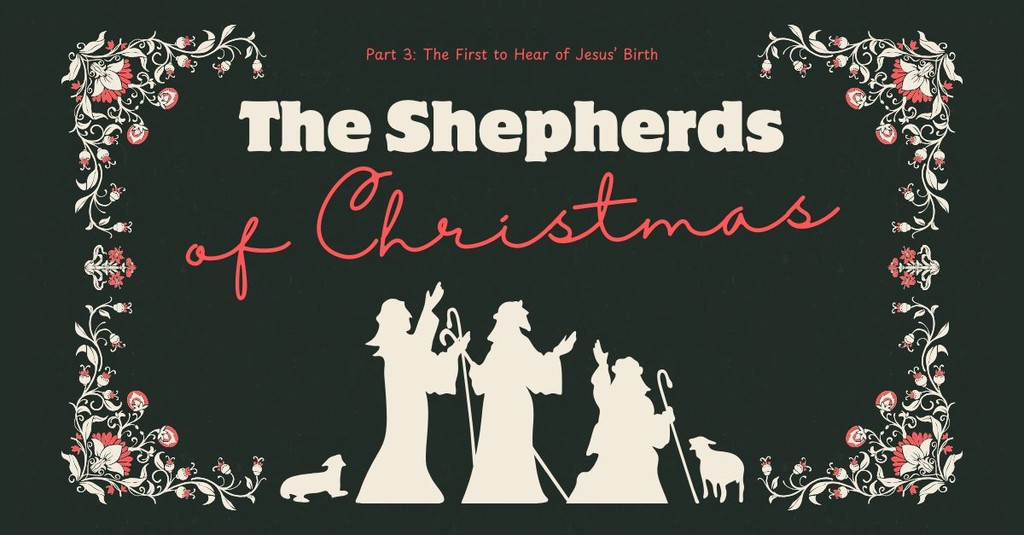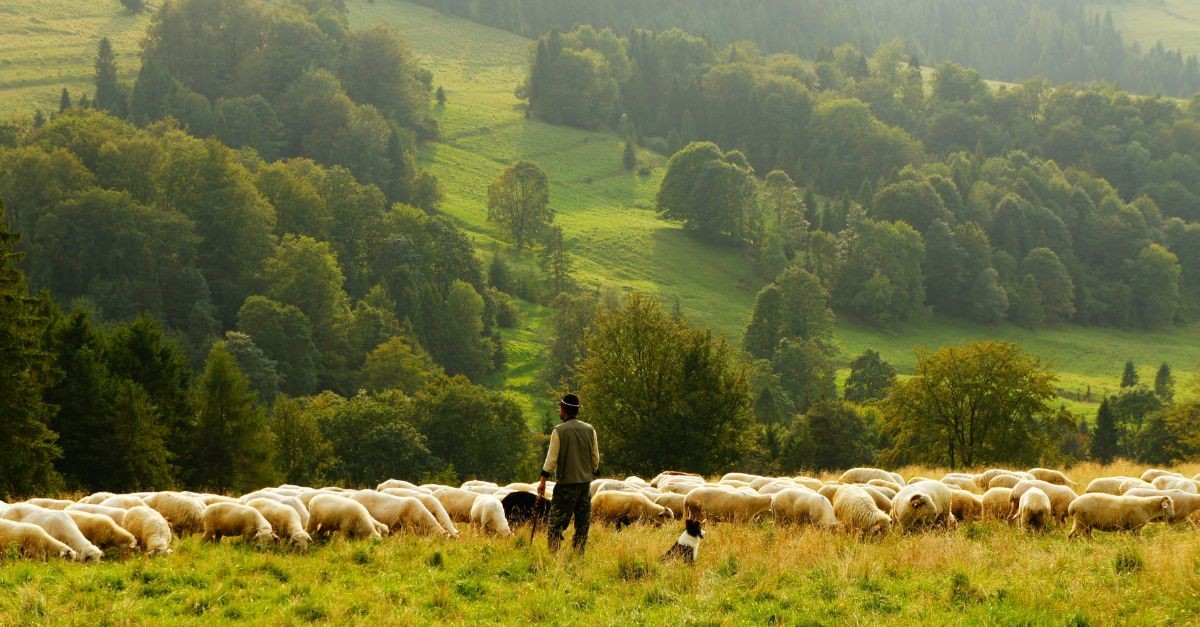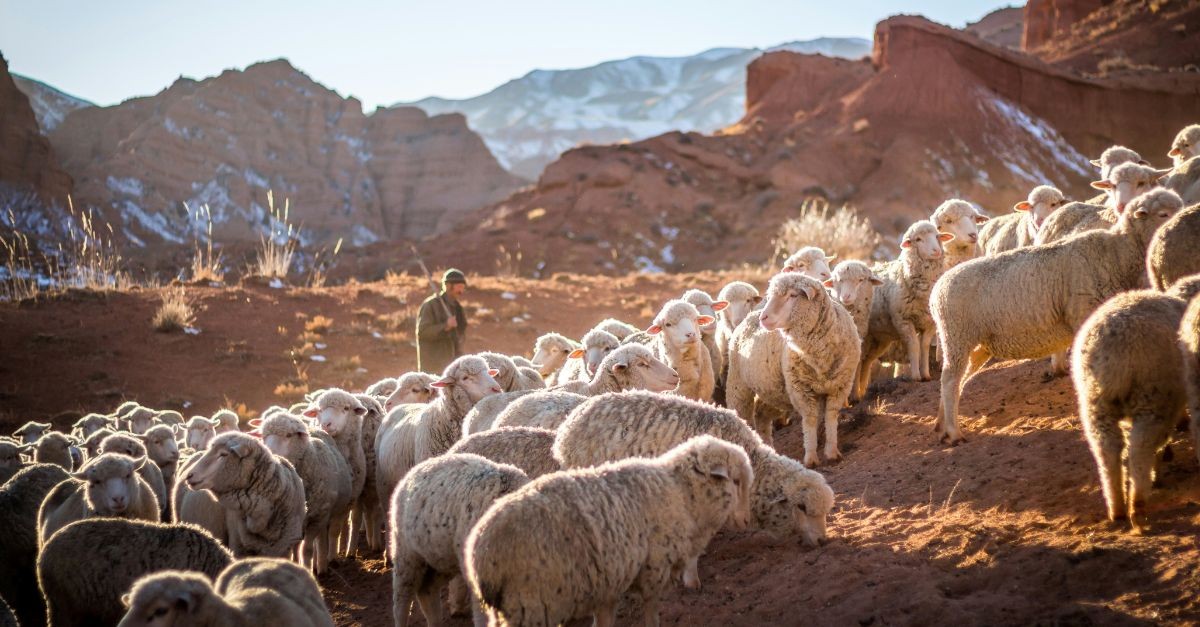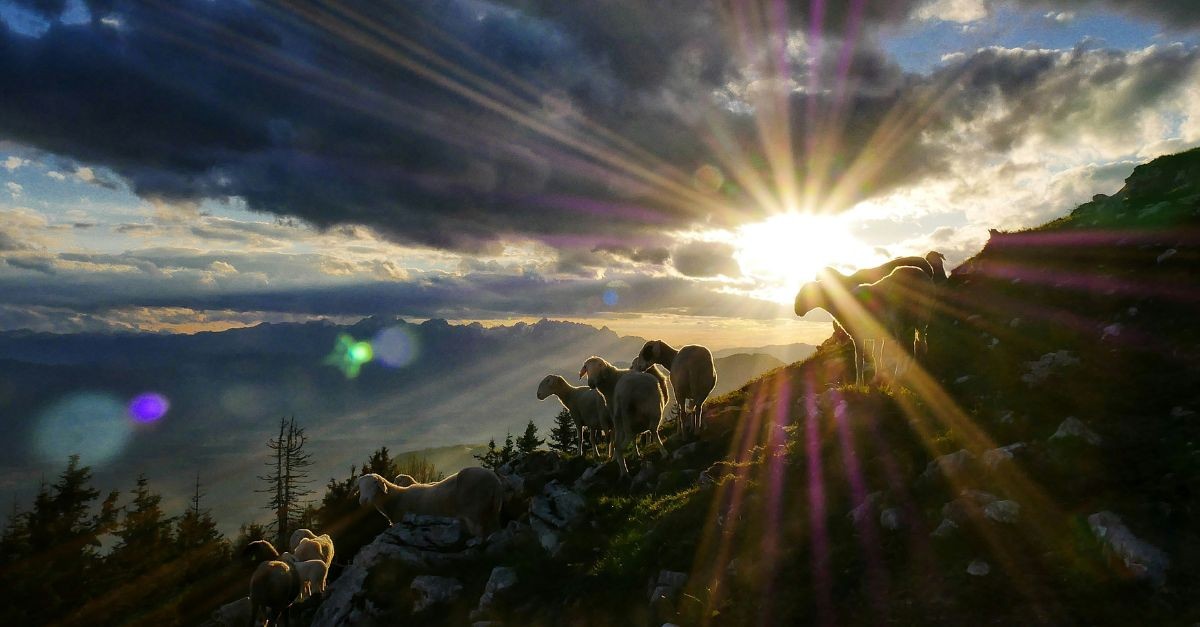
“I am the good shepherd. The good shepherd lays down his life for the sheep." - John 10:11-18
We all know the story, don’t we? After all, the images and decorations at Christmas so often portray the shepherds standing at the manger. Any nativity scene would seem to be missing something if they did not have the shepherds. So many of us have had the pure delight of watching kids perform in a Christmas pageant, and everyone, the shepherds, are included in the story.
But doesn’t it raise some interesting questions? As in so many other parts of our lives, we get so accustomed to the stories at Christmas that it all tends to blur together, and we forget the significance. In this case, why the shepherds? Why not the religious leaders of the day? After all, the prophecies of the coming of the Messiah were being fulfilled in their own lifetimes! God was coming to live among us in human form! How could this not be massive news to every Jew who had been waiting for generations and generations? Who celebrated the birth of every boy, awaiting the coming, conquering Messiah who would save them from the evils of Roman domination?
Instead, these simple shepherds are the first to hear and see the birth of the Messiah! Jesus Christ – born in the flesh.
And there were shepherds living out in the fields nearby, keeping watch over their flocks at night. An angel of the Lord appeared to them, and the glory of the Lord shone around them, and they were terrified. But the angel said to them, “Do not be afraid. I bring you good news that will cause great joy for all the people. Today in the town of David a Savior has been born to you; he is the Messiah, the Lord. This will be a sign to you: You will find a baby wrapped in cloths and lying in a manger.”
Suddenly a great company of the heavenly host appeared with the angel, praising God and saying,
“Glory to God in the highest heaven, and on earth peace to those on whom his favor rests.”
When the angels had left them and gone into heaven, the shepherds said to one another, “Let’s go to Bethlehem and see this thing that has happened, which the Lord has told us about.”
So they hurried off and found Mary and Joseph, and the baby, who was lying in the manger. When they had seen him, they spread the word concerning what had been told them about this child, and all who heard it were amazed at what the shepherds said to them. But Mary treasured up all these things and pondered them in her heart. The shepherds returned, glorifying and praising God for all the things they had heard and seen, which were just as they had been told.
- Luke 2:8-20
Photo Credit: SWN Design

Shepherds throughout the Old Testament
Israel had a deep, rich heritage of shepherding throughout their history, from Abel to Abraham to Isaac to Jacob. Job had some 14,000 sheep. When Jacob led his family into Egypt at Joseph’s encouragement, the entire family were shepherds, caring for flocks. The profession was respected among the Israelites and served as a source of wealth. Even if the families experienced disdain from others – like the Egyptians, who detested shepherds – the Jews had a rich, treasured nomadic, shepherding history. But then, things changed a bit.
By the time of David, shepherding had been relegated to the youngest of the family. Of course, the youngest was generally regarded also as the weakest, especially for a young boy like David, with seven older brothers - many of whom served in Saul’s army and went off to fight the Philistines. At the same time, David stayed back and tended the flock—the lowliest of positions. We can only imagine his older brothers as David was anointed the second king of Israel, killed the Philistine champion, Goliath, with nothing but a slingshot, and became perhaps the greatest warrior in history – certainly in the history of Israel.
Yet, David never forgot his roots as a shepherd. He used the leadership, care, protection, and guidance lessons he had learned as a shepherd and the incredibly tight bond between a shepherd and his flock. David referred to this bond often in his psalms, particularly in what has become the favorite psalm of so many.
"The Lord is my shepherd, I lack nothing.
He makes me lie down in green pastures,
he leads me beside quiet waters,
he refreshes my soul.
He guides me along the right paths
for his name’s sake.
Even though I walk
through the darkest valley,
I will fear no evil,
for you are with me;
your rod and your staff,
they comfort me.
You prepare a table before me
in the presence of my enemies.
You anoint my head with oil;
my cup overflows.
Surely goodness and love will follow me all the days of my life,
and I will dwell in the house of the Lord forever.
- Psalm 23
Yet, by the time of Jesus's birth, some 1000 years later, shepherding had dropped significantly further down the ladder of respect as a profession. Yet, it was these men to whom God chose to reveal the birth of the Messiah—to these outcasts and downtrodden.
Of course, only God knows why He does what He chooses to do, but there are four prospective reasons.
Photo Credit: ©Unsplash/Biegun Wschodni

1. God Chose Shepherds for Their Devoted Willingness to Protect
As King David knew, being a shepherd is challenging and difficult. The shepherd must protect his flock from dangerous predators. As he volunteered to confront Goliath, David described this to King Saul:
"But David said to Saul, “Your servant has been keeping his father’s sheep. When a lion or a bear came and carried off a sheep from the flock, I went after it, struck it and rescued the sheep from its mouth. When it turned on me, I seized it by its hair, struck it and killed it. Your servant has killed both the lion and the bear; this uncircumcised Philistine will be like one of them, because he has defied the armies of the living God." - 1 Samuel 17:34-36
Sheep required a great deal of care and guidance. Shepherds were often required to walk many miles to ensure their flock was guided to pastures and water. Sheep tend to wander off by themselves and get lost – causing a shepherd to search, often far and wide, for his one lost sheep. Of course, this brings to mind Jesus parable of the lost sheep in Luke 15:4-6:
"Suppose one of you has a hundred sheep and loses one of them. Doesn’t he leave the ninety-nine in the open country and go after the lost sheep until he finds it? And when he finds it, he joyfully puts it on his shoulders and goes home. Then he calls his friends and neighbors together and says, ‘Rejoice with me; I have found my lost sheep.’"
Like sheep, we become overconfident and prideful – or distracted by the shiny new objects we see. We see greener grass and move towards it, failing to see how far we have moved away from the flock. And, like sheep, our only chance of survival is with the flock, under the care of a “good shepherd” who makes us lie down in green pastures and leads us beside still water (Psalm 23:2) Like a lion who is prowling around seeking someone to devour (1 Peter 5:8) the Evil One is waiting to find a lamb who has wandered too far from the flock. Too far from our good shepherd - Jesus.
These elements together demonstrate the closeness of the bond between a shepherd and his sheep. He was their constant companion, caring for them as a flock and individually. The sheep would learn to trust the shepherd – listen to his voice and follow his lead. David knew this – and carried all of these elements into his role as king of Israel.
This relationship is reflected in Jesus’ constant care for us, his protection, leadership, and guidance, and his willingness to lay down his life for his flock—we, the sheep of his pasture.
Jesus is the Shepherd who meets all our longings (Psalm 23) and the Great Shepherd who calls His sheep to follow Him.
"My sheep listen to my voice; I know them, and they follow me. I give them eternal life, and they shall never perish; no one will snatch them out of my hand." - John 10:27
Photo Credit: ©Unsplash/ Patrick Schneider

2. God Chose Shepherds to Display His Favor on the Humble
Look who His disciples were. He didn’t choose the religious leaders – the Pharisees, Sadducees, or the scribes. He chose ordinary, hard-working stiffs who worked for a living. Look at who Jesus said was blessed in the Beatitudes. Not the rich and influential. Instead, the poor in spirit, the meek, those who hunger and thirst for righteousness, the merciful.
Jesus held his most harsh criticism for the self-righteous religious leaders of the day. Such religious leaders were put to shame in God's eyes when He chose shepherds. Remember what Paul told us in his letter to the church at Corinth:
"Instead, God chose things the world considers foolish in order to shame those who think they are wise. And he chose things that are powerless to shame those who are powerful." - 1 Corinthians 1:27
The religious leaders might appear good, even great, to themselves and in the eyes of men, but God sees through all of us. It is interesting to note that when the Pharisees confronted the man born blind who Jesus had healed (John 9), they ultimately threw him out for suggesting that Jesus was from God – yelling at him, “You were steeped in sin at birth; how dare you lecture us!” (v. 34) The healed man – steeped in sin at birth – but they were not.
Jesus Himself told us that He had come not to the self-righteous but rather to those who know they are sinners and need God.
“I have come to call not those who think they are righteous, but those who know they are sinners and need to repent.” - Luke 5:32 NLT
Photo Credit: ©Unsplash/Jaka Skrlep

3. Shepherds Received the First News of Christ as a Foreshadow of His Sacrifice
Alfred Edersheim was a Biblical scholar, born in Vienna to Jewish parents of wealth, and lived between 1825 and 1889. Edersheim believed that God had another, greater purpose in announcing Christ's coming to shepherds first. Edersheim says the role of a shepherd foretells the role of Christ: "These men who watched the sheep meant for the slaughter received a divine message about the ultimate Lamb who would take away the sins of the world through His death and resurrection."
Jesus is indeed the Lamb of God who came to take away the sins of the world through his death on the cross and the shedding of His blood. While the shepherds rejoiced at seeing Jesus at birth, God saw the ultimate purpose of Christ coming to earth – to give his life as a ransom for his flock:
"For even the Son of Man did not come to be served, but to serve, and to give his life as a ransom for many.” - Mark 10:45
Photo Credit: ©Getty Images/ Shuang Paul Wang

4. The Shepherds Illustrate the Reach of God’s Love for the Lowly
They were neither rich nor even well off. They were peasants – forever relegated to the fields. The clothes on their backs were probably everything they owned. And the society treated them that way. Shepherds had become the outcasts of society – looked down upon by others. They were counted among those who must have sinned to be relegated to such a role and were scorned by all – especially by the day's Pharisees and other religious leaders.
God does not reserve His love for just a few – He loves all. And Jesus taught that we are to do the same:
"You have heard that it was said, ‘Love your neighbor and hate your enemy.’ But I tell you, love your enemies and pray for those who persecute you, that you may be children of your Father in heaven. He causes his sun to rise on the evil and the good, and sends rain on the righteous and the unrighteous. If you love those who love you, what reward will you get? Are not even the tax collectors doing that? And if you greet only your own people, what are you doing more than others? Do not even pagans do that? Be perfect, therefore, as your heavenly Father is perfect." - Matthew 5:43-48
When Jesus gave His life on the cross, it was not simply for those who “deserved it.” His love was not reserved for a select few—but for every one of us who recognizes our need for his great love, mercy, grace, and forgiveness of our sins.
"For God so loved the world that he gave his one and only Son, that whoever believes in him shall not perish but have eternal life." - John 3:16
Photo Credit: ©iStock/Getty Images Plus/MasaruHorie
Part 1: 5 Wondrous Insights from the Biblical Symbolism of Shepherds
Part 2: How King David’s Life Reveals the Role of a Shepherd
Part 3: 4 Reasons God Chose Lowly Shepherds to Announce Jesus' Birth

Greg doesn’t pretend to be a pastor, a theologian, or a Bible expert, but offers the perspective of an everyday guy on the same journey as everyone else – in pursuit of truth.
Greg can be reached by email or on Facebook @ Greg Grandchamp - Author.
Originally published Tuesday, 29 October 2024.
